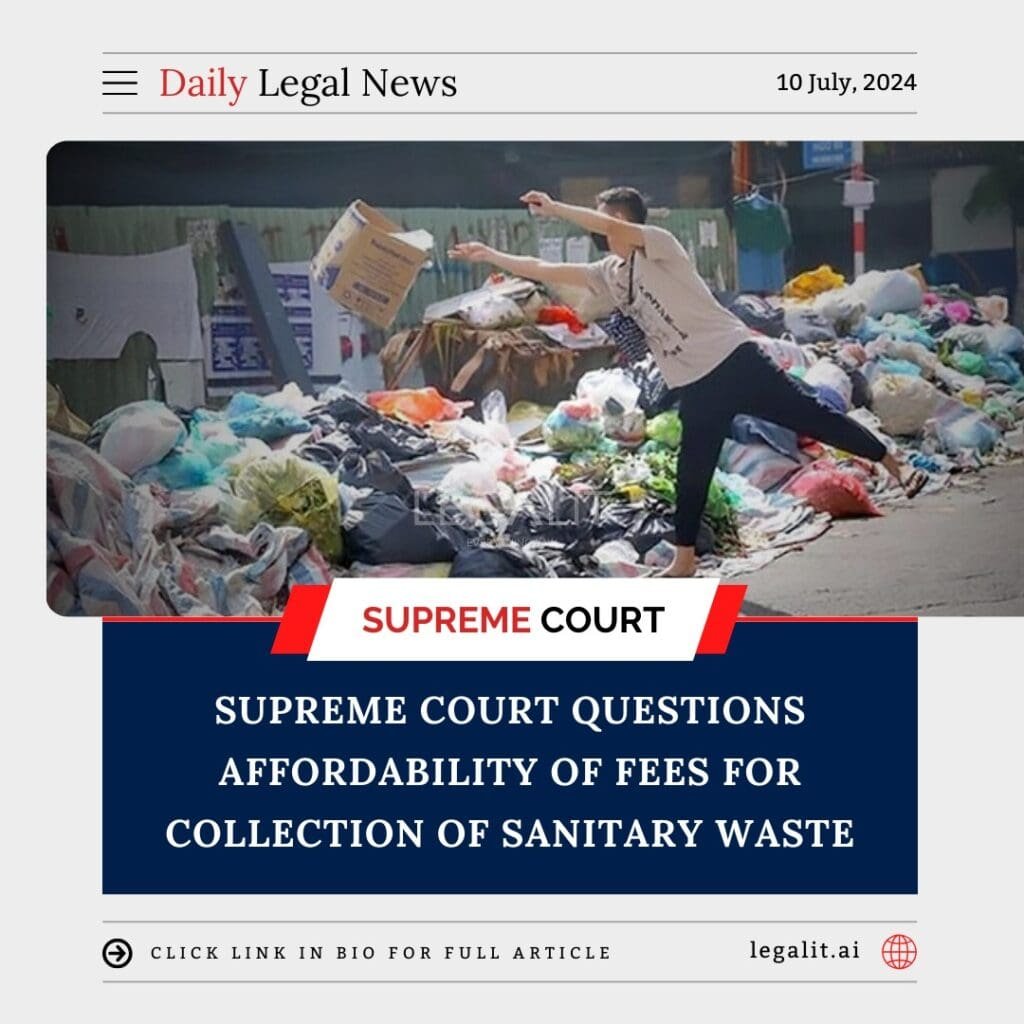
In a significant deliberation, the Supreme Court of India has raised concerns about the affordability of fees imposed for the collection of sanitary waste, particularly highlighting the impact on economically disadvantaged communities. The Court’s remarks underscore the broader issue of equitable access to sanitation services and the financial burdens faced by poorer populations.
Background of the Case
The issue arose from policies implemented by various municipal bodies that involve charging fees for the collection and disposal of sanitary waste. These policies, intended to manage waste efficiently, have inadvertently placed a financial strain on low-income households, leading to legal challenges and public outcry.
Supreme Court’s Concerns
During the proceedings, the Supreme Court made several key observations:
- Economic Burden on the Poor: The Court emphasized that the fees for sanitary waste collection disproportionately affect poor households, who may already struggle to meet basic needs. The Justices questioned how economically disadvantaged individuals and families are expected to afford these additional costs.
- Right to Sanitation: The Court highlighted that access to sanitation is a fundamental right linked to the right to life and dignity under Article 21 of the Indian Constitution. Imposing fees that hinder access to essential sanitation services undermines this right.
- Policy Review: The Supreme Court suggested the need for a review of existing policies to ensure they are inclusive and do not place undue financial burdens on vulnerable populations. The Court urged the authorities to consider subsidizing these services or exploring alternative funding mechanisms to support low-income households.
Implications of the Ruling
The Supreme Court’s remarks have significant implications for public policy and municipal administration:
- Policy Revisions: Municipal bodies and policymakers may need to revisit and revise the fee structures for sanitary waste collection to ensure they are equitable and do not exclude poor households from accessing essential services.
- Subsidies and Financial Aid: The ruling may prompt the introduction of subsidies or financial aid programs to assist economically disadvantaged communities in affording sanitary waste collection services.
- Awareness and Advocacy: The decision highlights the importance of awareness and advocacy for the rights of low-income individuals, ensuring that public services are accessible to all sections of society.
Public and Government Reactions
The Supreme Court’s concerns have been echoed by various stakeholders:
- Advocacy Groups: NGOs and advocacy groups focused on sanitation and poverty alleviation have welcomed the Court’s intervention, calling for immediate action to address the financial barriers faced by poor households.
- Government Response: Municipal bodies and government officials are expected to respond by reviewing current policies and potentially implementing measures to make sanitary waste collection more affordable and accessible.
Conclusion
The Supreme Court’s questioning of the affordability of fees for the collection of sanitary waste underscores the need for equitable access to essential services. This ruling calls for a reassessment of policies to ensure that they do not impose undue financial burdens on the poor, thereby upholding the fundamental right to sanitation. As the government and municipal bodies respond to these concerns, it is hoped that more inclusive and supportive measures will be implemented to benefit economically disadvantaged communities.